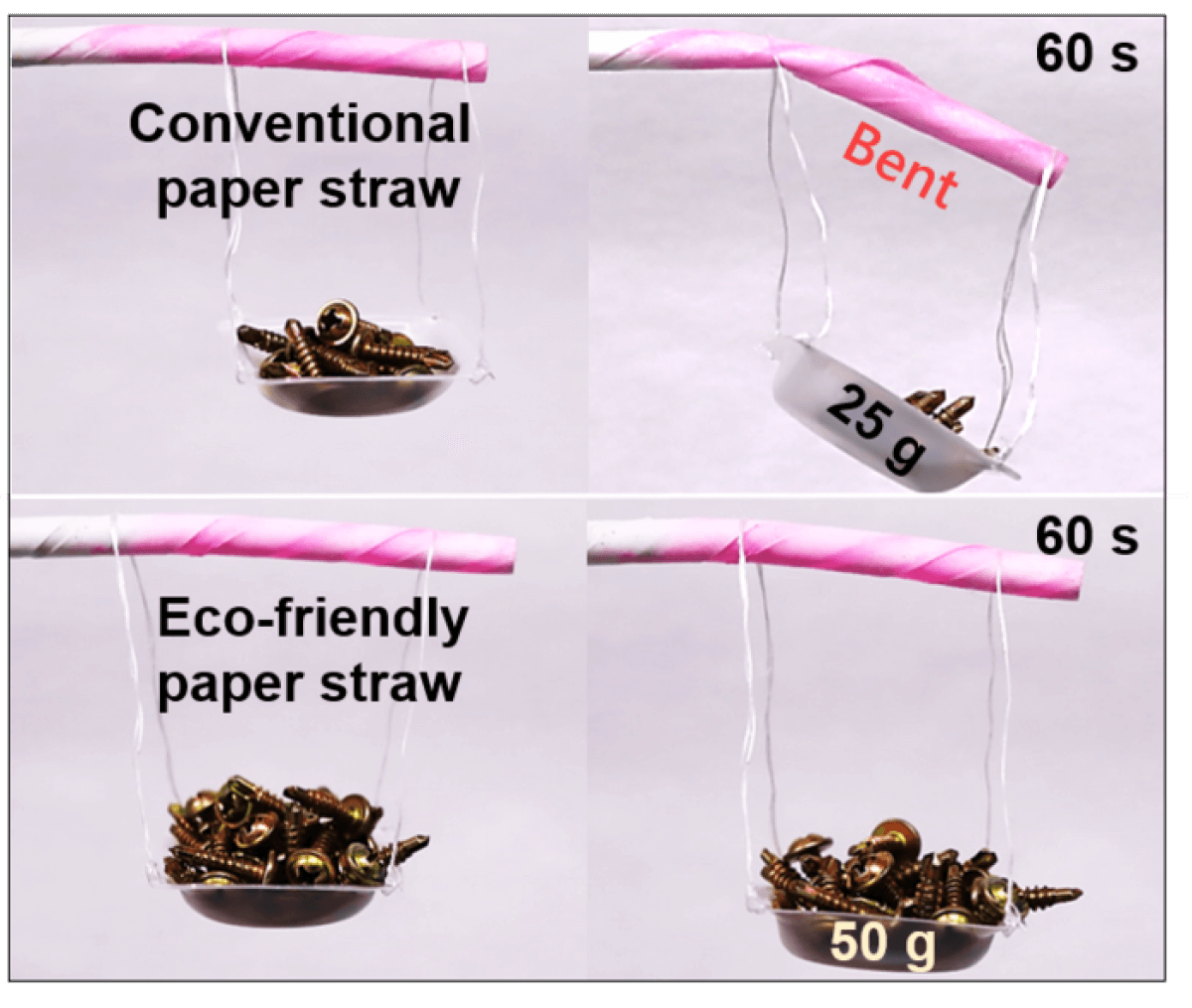DAEJEON, South Korea — Paper straws may seem great in theory, but nobody likes when they get soggy within a few seconds. Scientists from the Korea Research Institute of Chemical Technology (KRICT) understand the frustration, and are developing a 100-percent biodegradable, environmentally-friendly paper straws that doesn’t get soggy.
Paper straws on the market now are not just made of paper, researchers explain. If they were made of 100-percent paper, they would become even soggier, to the point that they wouldn’t even be usable as a straw. As such, manufacturers coat the surface with polyethylene (PE) or acrylic resin, which are both ingredients in plastic bags and adhesives.
Paper cups undergo this coating as well. Unfortunately, several studies report that the coating material doesn’t fully decompose — becoming microplastics instead. It’s also difficult to simply recycle these products because of the fact that they aren’t entirely paper but include degrees of plastic as well.
Currently, polylactic acid (PLA) straws and rice straws are available as alternatives to paper straws, but PLA straws (corn plastic straws), don’t break down well in the ocean. On the other hand, rice straws do, but they cost more and are much more difficult to mass-produce.

This KRICT research team synthesized a well-known biodegradable plastic called polybutylene succinate (PBS) by adding a small amount of cellulose nanocrystals to create a coating material, which is made of the same material as the main material of paper.
Due to this more uniform coating, these straws also won’t cause bubbles to form upon contact with carbonated drinks. Since the straw material and the coating consist of paper and biodegradable plastics, it can completely break down in the environment.
The team not only found that their straws hold up well in cold drinks, but hot ones as well. They discovered that the straws didn’t become soggy when used to stir drinks like water, tea, soda, milk, and other beverages that contain fats, or after leaving the straw in liquid for a prolonged period of time.
Further, the team found that the straws could even decompose in the ocean. Upon performing a decomposition test in a marine environment by immersing the samples in a body of water on the coast by Pohang, South Korea, researchers found that regular plastic straws and corn plastic straws didn’t decompose after 120 days, while their straws decomposed entirely by this time.
“This technology is but a small step toward the direction we need to take in this era of plastic. Turning a plastic straw we often use into a paper straw will not immediately impact our environment, but the difference will be profound over time. If we gradually change from using convenient disposable plastic products to various eco-friendly products, our future environment will be much safer than what we now worry about,” says head researcher Dr. Oh Dongyeop in a media release.
The findings are published in the journal Advanced Science.

Source link
